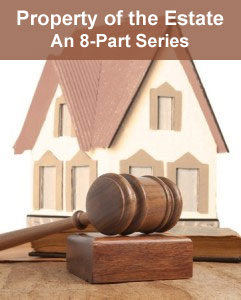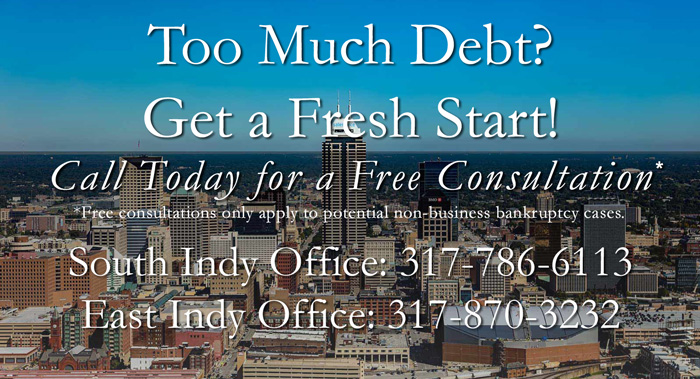 #6 of 8 in Series — Previous Article #5: Chapter 7 and Chapter 13 Bankruptcy Codes Conflict
#6 of 8 in Series — Previous Article #5: Chapter 7 and Chapter 13 Bankruptcy Codes Conflict
Under the estate transformation approach, it would appear that any after acquired asset would not become property of the estate unless that property would be necessary to complete the terms of the plan. As an example, if a Chapter 13 plan was filed to repay priority tax claims and the debtor was later wrongfully terminated any chosen action necessary to complete the terms of the plan would become property of the estate to the extent necessary to repay those priority claims.
In addition, the trustee would have the option of attempting to modify the plan under section 1329[1] to increase the dividend to unsecured creditors if the trustee felt there was additional disposable income available. However, if the asset is not necessary to the fulfillment of the plan (and it is not property of the estate) does it need to be disclosed? Clearly if the asset is a cause of action, it must be disclosed regardless of whether the asset is property of the estate, otherwise the debtor may be barred from pursuing that action through judicial estoppel.
On the date of filing, the debtor owned a house, which was fully encumbered by a mortgage and had no equity value at all. The debtor surrendered the house, basically saying, “I don’t want it any more.”
The estate trustee, of his own agreement, abandoned the property and returned it, fully encumbered, to the debtor. The property was no longer part of the estate.
A couple of years later, the home was sold at a tax sale because the debtor wasn’t paying the taxes on it. At a tax sale, investors bid on properties. You, as an investor, if the home is worth $100,000, have to bid at least the amount of the owed taxes, or higher if bidding against another investor.
For example, for this $100,000 home with a $100,000 mortgage and $10,000 in back taxes owed, the investor bid $40,000. Either the mortgage company or the debtor have one year to pay the $10,000 in back taxes, plus 10% interest (of the investor’s initial purchase price.)
For investors, it is a great deal to bid at a tax sale because one of two things is going to happen. In this case, if no one redeems the property, the investor buys a $100,000 piece of property for $40,000, which is a very good deal. If the property is redeemed, the investor gets his money back, plus a 10% return on the investment ($4,000), which is not quite as profitable, but is still a very good short-term ROI.
The results were: the investor bid $40,000; the debtor didn’t want the property and was out of the picture; and the mortgage company, for whatever reason, never paid the $10,000 tax bill (and the 10%). The mortgage company never started foreclosure proceedings, so the investor received the property, for $40,000, free and clear of any liens whatsoever, and owned it 100% outright. The county treasurer retained $10,000 to cover the taxes due, which left an additional $30,000, called an overage, which went to the current property owner – the investor. The overage did not go to pay any liens, because those were wiped out when nobody redeemed the property, so the county treasurer sent the $30,000 back to the homeowner.
When the estate trustee was informed about the overage refund, his reaction was, “Uh, uh, that’s property of the estate.” The trustee’s position was that this was property of the estate at the time of filing and that the debtor apparently misstated the facts by claiming there was no equity in the house. But, in fact, there was equity in it because, as stated earlier, property of the estate includes any unforeseen, speculative contingent, and it is the debtor’s responsibility to have listed it. We disagree with the trustee’s position and have submitted a brief in an effort to settle through an even split of the $40,000.
Debtor Must Schedule All Legal or Equitable Interests as Assets
In the case, Cowling v. Rolls Royce Allison (S.D. IN Case No. 1:11-cv-01719-JMS-TAB, Oct. 5, 2012)[6], the court held “[a]t the outset, the Court must determine whether the claims Mr. Cowling asserts in this lawsuit should be included in his Chapter 13 bankruptcy estate. The clear answer is ‘yes’. Under the Bankruptcy Code, a debtor must schedule as assets ‘all legal or equitable interests of the debtor in property as of the commencement of the case.’ 11 U.S.C. § 541(a)(1).
Cause of Action Assets Acquired During Bankruptcy Considered Property of Estate
Additionally, causes of action which the debtor acquires while the bankruptcy is pending are also considered property of the bankruptcy estate. 11 U.S.C. § 1306(a)(1)[1] (‘Property of the [Chapter 13 bankruptcy] estate includes…all property of the kind specified in such section that the debtor acquires after the commencement of the case but before the case is closed, dismissed, or converted…’).” The District Court simply dismissed the case without prejudice due to the debtor’s lack of standing to bring the cause of action and thus did not need to even rule on the issue of judicial estoppel. The District Court also held that the debtor has an ongoing duty to schedule newly acquired assets while the case is open. Sections 1307[1] and 1330[1] allow for revocation of confirmation and dismissal in limited circumstances where the confirmation order itself was procured through fraud.
Next Article in Series: Additional Bankruptcy Cases to Consider Regarding Estate Property
Sources: [1] Cornell University Law School Legal Information Institute; [2] Justia; [3] OpenJurist; [4] CaseText; [5] CourtListener; [6] Leagle
Disclosure required by 11 U.S.C. § 528(a)(3): We, the law office of Tom Scott & Associates, P.C., are a debt relief agency. We help people file for bankruptcy relief under the Bankruptcy Code.
